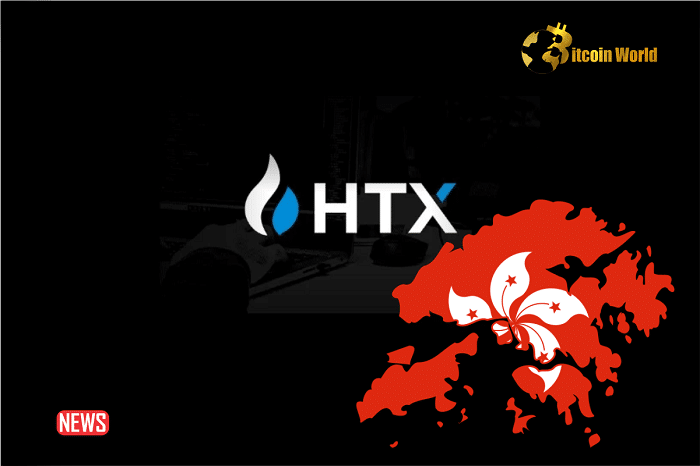The cryptocurrency world is constantly evolving, and recent news from Hong Kong has everyone talking. HTX, previously known as Huobi Global, has withdrawn its application for a license from Hong Kong’s Securities and Futures Commission (SFC). What does this mean for HTX, the regulatory environment, and the future of crypto exchanges in the region? Let’s dive in.
HTX Withdraws Hong Kong License Application: What Happened?
On February 23rd, a filing on the SFC website revealed that HTX had withdrawn its license application. This move raises several questions, especially given Hong Kong’s push to become a major crypto hub. Here’s a breakdown of what we know:
- The Decision: HTX, backed by Justin Sun, decided to pull its application from the Hong Kong SFC.
- No Official Reason: As of now, HTX hasn’t publicly stated why they withdrew the application.
- Timing: This comes at a time when Hong Kong is actively working to establish itself as a virtual asset center.
See Also: Crypto Exchange HTX Applies For Hong Kong License
Why the Silence? Possible Reasons for HTX’s Withdrawal
The lack of explanation from HTX has fueled speculation within the crypto community. Here are some potential reasons for the withdrawal:
- Regulatory Hurdles: Hong Kong’s SFC has a strict regulatory framework for virtual asset trading platforms. Meeting these requirements can be challenging and costly.
- Strategic Shift: HTX might be re-evaluating its business strategy and focusing on other markets with less stringent regulations.
- Compliance Concerns: There might be concerns related to compliance with anti-money laundering (AML) or know-your-customer (KYC) regulations.
Security Breaches and Market Confidence
Adding to the complexity, HTX and its sister exchange, Poloniex, have faced security breaches. In November, Poloniex suffered a significant loss of $125 million due to a hack. While Justin Sun assured users that the losses were manageable, such incidents can impact market confidence and regulatory scrutiny.
The Bigger Picture: Crypto Regulation and Investor Protection
HTX’s withdrawal highlights the increasing regulatory scrutiny faced by cryptocurrency platforms worldwide. Authorities are working to create clear rules to protect investors and ensure market integrity. This includes:
- Stricter Licensing Requirements: Exchanges need to meet specific criteria to obtain and maintain licenses.
- Enhanced Security Measures: Robust cybersecurity protocols are essential to prevent hacks and protect user funds.
- Transparency and Compliance: Exchanges must be transparent about their operations and comply with AML and KYC regulations.
See Also: Man Allegedly Vanishes After OTCPro Crypto Exchange Mistakenly Sent Him $585,000 Extra
What Does This Mean for the Future?
The HTX situation serves as a reminder of the challenges and complexities in the crypto space. Cryptocurrency exchanges need to prioritize regulatory compliance, invest in security, and maintain transparency to build trust and thrive in the long run.
Key Takeaways:
- HTX’s withdrawal underscores the evolving regulatory landscape for crypto exchanges.
- Security breaches remain a significant threat to the industry.
- Investor protection and market integrity are top priorities for regulators.
Disclaimer: The information provided is not trading advice. Bitcoinworld.co.in holds no liability for any investments made based on the information provided on this page. We strongly recommend independent research and/or consultation with a qualified professional before making any investment decisions.
#Binance #WRITE2EARN
Disclaimer: The information provided is not trading advice, Bitcoinworld.co.in holds no liability for any investments made based on the information provided on this page. We strongly recommend independent research and/or consultation with a qualified professional before making any investment decisions.



